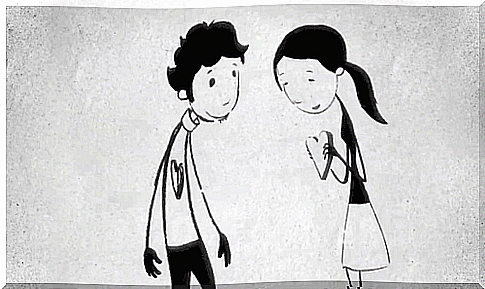Unconditional Acceptance, Or How Can You Not Want To Change The Other At All Costs?
Surely you have already felt that your worth as a person depends on the expectations of others. It generates an unpleasant feeling, which you might not rationally accept, but which you cannot avoid feeling. On the other hand, “the one who commands” wishes to provoke this feeling in us because he understands that it is a way of ensuring our obedience. In a way, when conditions of acceptance appear, it ceases to be unconditional.
“If you do what I want you to do, you are a good son / daughter”. “If you do this course, I will feel very proud of you”. “Try not to disappoint me by not doing what I want for you!”. “You have to be the joker and the joker in your group of friends to make them enjoy being with you!” . Unconditional acceptance involves loving someone for who they are, with their way of being in the world, without wanting to mold them as they please.
This does not mean that we should stop being sincere with this person or that we should stop telling them what we think is good for them. There is a difference between sincerity and emotional blackmail, which aims to manipulate the other.
Obeying outside orders keeps us away from accepting ourselves
At first glance, they seem like harmless messages that don’t have much power over our daily lives. But what if we blindly obey each of these messages? Becoming what others want you to be means being “sold to others”. To his parents, his friends, his spouse … Everyone, inevitably, in a more or less strong and concealed way, will ask us to be what they want us to be.
Logically, it is our responsibility whether or not to accept these messages as unshakeable orders. So we can set our own limits in a healthy and assertive way. “I won’t be who you want me to be, but I want to continue to be your friend. If you accept me as I am, that’s great, otherwise, I should get on my way and get away from you. ” This request which seems so simple to formulate is an act of enormous courage towards ourselves and towards the person to whom we want to show it.
Unconditional acceptance is an exercise in loving others
Starting from scratch our relationship with the other, starting from unconditional acceptance, is an exercise in respect for the intrinsic value of the human being. Being immersed in a relationship whose prosperity depends on whether or not you achieve what the other is asking for can be exhausting and very frustrating. Of course, we are not talking about unconditionally accepting behaviors that damage our emotional and physical health. Respect is a basic condition for any relationship.

If you are a very sensitive person and have a friend who is more rational, you surely go through times when you feel like they don’t understand you, or that they just don’t get along. enough for you, and that probably frustrates you more and more, because it is so. It may or may not change over time, but that’s not up to you.
In these cases, the healthiest thing is to accept that this friend is different from us and that often they will not be able to give us what we need. But in return, they can give us things that fuel this friendship. Perhaps, even if they are not sensitive enough to understand us, they are one of the people we can always count on.
“My God,
Give me the serenity
To accept
The things I can’t change,
The courage
To change the things I can,
And the wisdom
To know the difference.”
-Saint Francis of Assisi-
To accept a loved one unconditionally is to love his essence without wishing to modify it at any cost. It is to take a benevolent and kind look on what we do not like so much about him. Accepting unconditionally does not imply forcing ourselves to like our peculiarities, because we have the right not to appreciate certain things in others. But on the other hand, we must respect them and understand them as part of a whole, more or less logical, which represents the other.
Practicing unconditional acceptance begins with practicing with yourself
This exercise, which consists in accepting the other without conditions, must first of all be carried out with oneself. It is not asking the other person to be demanding or a perfectionist just because you are. To accept ourselves as we are is not to conform to others, nor to accept ourselves as a closed person who cannot flourish. To accept oneself is to respect oneself, to love oneself and not to punish oneself because we do not correspond to the standards that we impose on ourselves or that we cease to impose on ourselves.

If I manage to be comfortable with myself, with the essence that corresponds to me, with my lights and my shadows, with my infinite nuances, with all my colors… If I manage to love and respect all this melting pot of personal experiences, feelings, sensations, thoughts and actions, safely, I will feel healthier mentally and my attitudes will be more valuable.
“The amazing paradox is that it’s when I accept myself as I am that I can change.”
-Carl Rogers-
If I accept myself and love myself as I am -not only if I meet the conditions I have imposed on myself-, I will be able to look at the other from this amiable prism, and accept him as a whole. , which they represent. If I look at him with that confidence and accept it for who he is, he will feel more understood and less inhibited from being him / herself. Some trees – which I don’t like about him / her – won’t prevent me from seeing the forest as a whole.
I will be able to contemplate it with all the potential that my intact vision brings to me!









